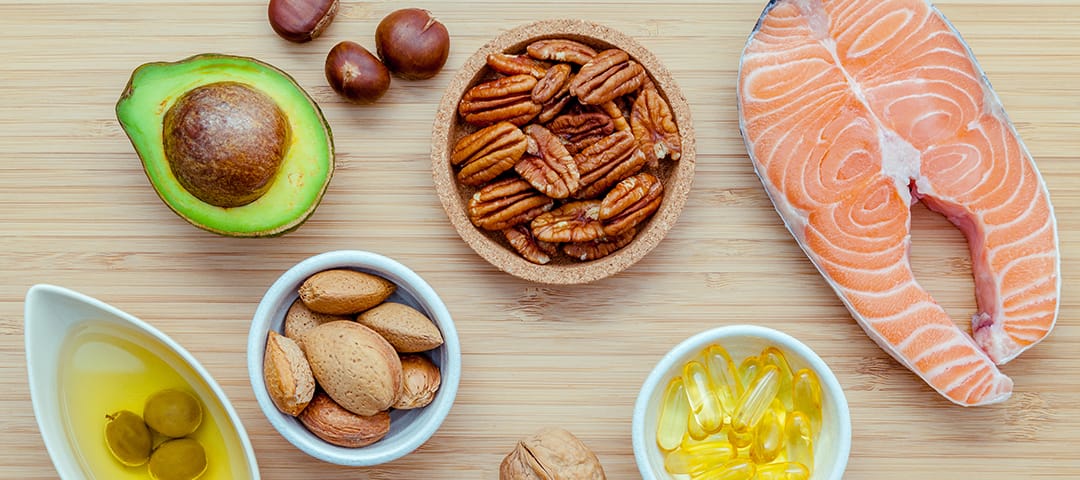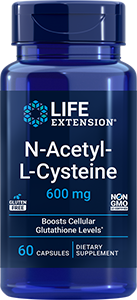
Newsletter
Newsletter
Omega-3 intake could benefit muscle mass, strength

People who want to maintain muscle mass and strength may benefit from omega-3 long-chain polyunsaturated fatty acids (PUFAs), according to a meta-analysis published in the December 2021 issue of Clinical Nutrition ESPEN, an official publication of the European Society for Clinical Nutrition and Metabolism.1
The findings suggest that omega-3s could be helpful to people at risk of sarcopenia: muscle loss that occurs during aging. “Sarcopenia is associated with a decline in functional capacity of the muscle, which leads to physical disability, lower quality of life, and an increased risk of death,” authors Julia K. Bird and colleagues noted. “These results indicate that omega-3 long chain PUFAs could be useful in increasing skeletal muscle mass or strength, particularly in populations at risk of sarcopenia.”
“Many people do not meet omega-3 long-chain PUFA intake recommendations and have low red blood cell omega 3 long chain PUFA levels," they observed.
The researchers analyzed 66 randomized, controlled trials that examined the effects of intake with omega 3 fatty acids on lean body mass (fat free mass), skeletal muscle mass and other measures of muscle mass and strength among healthy men and women and individuals with diseases that included cancer, COPD, rheumatoid arthritis, kidney disease, Duchenne muscular dystrophy, heart failure and morbid obesity. Study duration ranged from 6 days to 36 months, with a median duration of 56 days.
The meta-analysis found significant improvement in association with omega-3 intake compared to the control groups. Specifically, lean body mass, skeletal muscle mass, and quadriceps muscle strength significantly improved in association with omega-3 intake.
Products
Apply What You've Learned: Muscle Up Your Fitness Routine
- The best exercise for muscle strength. While most exercise is beneficial for overall muscle tone and fitness, strength training with free or machine weights (or your own body weight as resistance) is the best type of exercise for muscle growth.2 If you are new to exercise, consult with your physician to determine if it is safe for you to initiate an exercise program.
- Strong for the long haul. Although many people exercise with the goal of better athletic performance or a sleeker physique, one of the most overlooked benefits of resistance training is maintaining muscle strength as you age—so that you can keep up with your daily activities and prevent falls.
- Fuel healthy muscles. Adequate protein intake is essential for muscle maintenance. Although there are some conditions that necessitate a restriction in the intake of protein, a rule of thumb for healthy people is to consume 0.8 grams of protein for every kilogram (approximately 2.2 pounds) of body weight. Athletes, older individuals and pregnant and lactating women may need more.3-5
- Don’t forget your omega-3s. Long-chain omega-3 fatty polyunsaturated fatty acids, including eicosapentaenoic acid (EPA) and docosahexaenoic acid (DHA) occur in fatty fish and the algae they feed on. The short-chain omega-3 fatty acid known as alpha linolenic acid (ALA) is found in plant sources, such as flaxseed. While some ALA may convert to long-chain omega-3, current research indicates that this amount is limited. It is better to rely upon pre-formed sources of EPA and DHA to ensure adequate intake of these critical fatty acids for muscle support and other benefits.6,7
References
- Bird JK et al. Clin Nutr ESPEN. 2021 Dec;46:73-86.
- Grgic J, et al. Sports Med. 2019 Feb;49(2):233-254.
- Richter R et al. Ann Nutr Metab. 2019;74(3):242-250.
- Bauer J et al. J Am Med Dir Assoc. 2013 Aug;14(8):542-59.
- Elango R et al. Adv Nutr. 2016 Jul; 7(4): 839S–844S.
- Lane K et al. Crit Rev Food Sci Nutr. 2014;54(5):572-9.
- Burdge GC et al. Reprod Nutr Dev. Sep-Oct 2005;45(5):581-97.
Featured Life Extension Magazine® Article
Nutrients That Protect Against Memory Loss, by Mike Jensen
As people age, amyloid beta protein can clump to form plaques in the brain that may interfere with cognitive function. A contributor to this process is overactivity of the enzyme GSK-3, involved in the management of glucose metabolism.
The mineral lithium, in low doses, has been found to inhibit GSK-3. Studies in mice have found that lithium increased the brain’s clearance of amyloid and reversed memory deficits. In humans, lithium has been associated with a reduction in the rate of cognitive decline.
Another nutrient that supports a healthy brain during aging is proline-rich polypeptide complex. A randomized one-year trial involving Alzheimer disease patients resulted in improvement in cognitive scores among over half of those who received proline-rich polypeptide complex, while scores declined among the placebo group.
With the limited effectiveness of currently available medications used to treat cognitive impairment and Alzheimer disease, a combination of low dose lithium and proline-rich polypeptide complex may provide a promising alternative for those who wish to maintain healthy cognitive function.
What's Hot
Health Concern
Vitamin C may help preserve muscle mass
An article that appearedon August 26, 2020 in the Journal of Nutrition reported the finding of researchers at the University of East Anglia of an association between higher intake of vitamin C and greater skeletal muscle mass in older men and women.
Related Life Extension Magazine® Articles

Preserve Muscle and Improve Body Composition
A derivative of the amino acid leucine, called HMB, improves muscle growth, strength, lean mass, and healthy body composition.

Beyond Heart Health: More Reasons To Take Fish Oil
Fish oil is associated with 14% reduced human mortality along with protection against neurodegeneration, metabolic disorders, and persistent inflammation.
Life Extension Magazine® Issue Now Online
A remarkable number of healthy-longevity findings have been published over the past 18 months.




